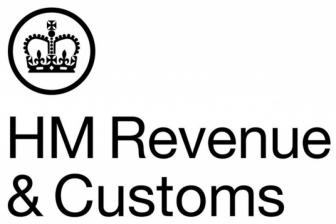 The number of property transactions in Britain fell by 12.6% in January compared with the same month last year, official figures released yesterday show.
The number of property transactions in Britain fell by 12.6% in January compared with the same month last year, official figures released yesterday show.
There were 85,520 residential property transactions last month, down from 97,810 a year earlier, according to HMRC’s monthly property transactions data.
But HMRC noted that this was more in line with transaction levels typically seen at this time of year pre-pandemic, such as January 2020 when there were 83,840 transactions completed.
The fact that the level of residential sales remains positive by pre-pandemic standards partly reflects the fact that there is a chronic shortage of properties on the market in relation to demand.
Jason Tebb, CEO of OnTheMarket.com, commented: “With transaction levels settling back to pre-pandemic levels in January, some of last year’s frenetic market activity has dissipated. However, while the Stamp Duty holiday incentivised many buyers, there are still plenty of purchasers who didn’t make a move last year and are keen to do so, determined to take advantage of a competitive mortgage market.
“As we head towards what is usually a busy spring market, the number of available properties for sale is still a long way short of meeting buyer demand. Our own data indicates that home mover confidence remains solid, which is translating into consistent momentum in terms of serious property seekers who are actively searching for a property to buy or rent. Correctly priced properties are going under offer quickly and it remains the best sellers’ market in decades.”
The lack of available properties on the market is almost certainly having an adverse impact on transaction numbers, as the supply-demand imbalance continues.
Lawrence Bowles, director of research at Savills, said: “It’s no surprise we’re seeing transaction activity start to ease back. Last year’s stamp duty holiday is now a distant memory, and a slowdown in the number of homes listed for sale means it’s looking more and more like a seller’s market.
“Figures from TwentyCi show the supply of homes for sale is 10% below the 2017-19 average.
“As a result, nine out of ten buyers say that the lack of available housing stock is having a negative effect on their ability to purchase a property.”
The supply shortage is clearly placing upward press on property prices.
Average asking prices have climbed by an average of £7,785, or 2.3%, in the past month, Rightmove said this week, as the buying frenzy continues despite the end of the stamp duty holiday.
The 2.3% increase in asking prices is the highest monthly growth rate ever recorded by the property website.
However, Jeremy Leaf, north London estate agent, described transaction levels as a better measure of property market health, rather than property prices.
He commented: “These numbers are no exception and confirm clearly what we have been seeing in our offices – the continuing lack of stock is constraining activity and only supporting the acceleration in prices.
“The good news is that listings are on the up, prompted by the increase in energy prices and interest rates. This should help to better balance supply and demand, as well as keep prices in check.”
Iain McKenzie, chief executive of the Guild of Property Professionals, added: “The post-Christmas fatigue has settled into the property market, with a slight slowdown in the volume of property sales we are seeing.
“With less incentives to buy since the end of the stamp duty holiday, and with some buyers worried about the effects of interest rate rises on their mortgage, this could be affecting this change.”


This headline, thank you Nostradamus.
You must be logged in to like or dislike this comments.
Click to login
Don't have an account? Click here to register
and in other news, water is still wet
You must be logged in to like or dislike this comments.
Click to login
Don't have an account? Click here to register